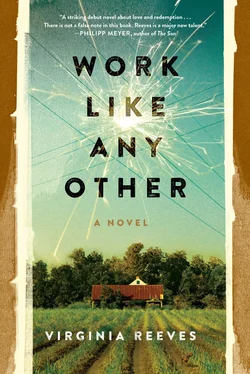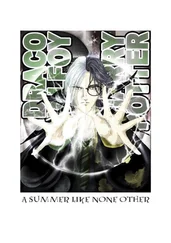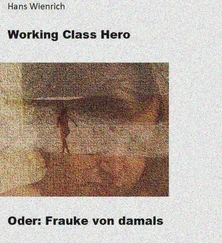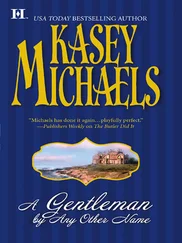“I can’t make it,” I told Jenny, but she pulled me forward. Maggie lay down on the brick walkway without being told. The heavy oak door was open, as it was every day of every summer I had lived here. Even the lightest hint of a breeze helped in fighting the heat. People were in the front sitting room, taking me in. My trousers were gritty, my hands calloused. My shirt hung loose, the cuffs ratty and threadbare. My nose and forehead were burned red by sun, and the beard I’d finally grown to cover the slack skin of my cheeks hung uneven off my chin. I still have that beard, though there are patches along my jaw that will never grow.
Jenny brought me into the room where Moa and Wilson stood with the stranger I now recognized as my son. I was surprised again by his appearance — his height and thickness and clothes.
“Hey, Pa.”
Next to him stood a man closer to my age. His suit was dark blue, his tie gold. His hair was gray at the sides, but dark on top and greased back from his forehead.
“Mr. Martin.” He lifted an enormous hand in my direction. “Good to meet you.” His voice was like Ed’s, something foreign to it. “My name’s Robert Hill. Gerald’s retained me to help with your situation.”
“We’ll go through it all,” Gerald said.
“I’m staying.” Jenny settled herself into a chair, and no one argued.
Gerald reached for me, and I allowed myself to grip hold of him.
Moa passed me a glass of iced tea, cold and slick in my hand. Wilson and Gerald took the chairs on either side of Jenny, leaving Moa and Robert Hill and me the sofa to share. We squeezed ourselves onto our own cushions. My glass poured its sweat into my hand.
Sips were taken. The house creaked in the walls with the breeze outside.
I wondered again how old my son was — eighteen? Nineteen? His birthday was in March. Maybe March 16? That didn’t sound right. Marie’s birthday was July 16. Mine is September 10. I would turn forty that coming fall. I feel like an old man.
“I know Moa and Wilson have talked to you about their ownership of the land,” Gerald said, “and the state of your—” He looked to the Grices for help.
“Your marriage,” Wilson said. “Yes, Moa and I told him about the divorce.”
“We didn’t know what to do,” Gerald said, pleading in his voice. “I hope you understand — we just didn’t know how to fight Mother, or whether we should, or what to do when you were released. We needed time to figure it out, time to get to know you again, and I know I haven’t done that, but I’m going to try, and I trust Moa and Wilson and all they’ve told me about your time here.”
“Gerald, honey,” Moa said, “you’ve nothing to apologize for. Just tell your father what we’re doing.”
He sucked in a thick breath. “Mr. Hill is here to help you fight the divorce.”
The lawyer must have sensed my astonishment. “Mr. Martin, we’re all quite certain that your marriage was dissolved without your consent.”
“Yes.”
“And that is against the law. Your former wife has divided her assets as she sees fit, but were you married — as the law would dictate — all of her assets would be as much yours as they are hers.”
“But she’s already given you the land,” I said to Moa.
She nodded, but Wilson spoke. “You don’t deserve to be cut out of it entirely.”
“There are a few options you can take,” Robert Hill said. “You could fight the divorce, which would be the longest route. It’d require witnesses from the prison hospital testifying to your mental state when your wife visited. You could also sue her for half of her current assets, which are significant — Gerald shared her will with all of us, and it’s clear she’s done well. She put her returns on this property toward investments her father had started, as well as other properties, like the one in Tuscaloosa, where Gerald currently resides. She has assets to distribute, quite certainly.”
“And if I’m not interested in either of those options?”
That damn iced tea felt dainty in my hands, a false thing that said we were the type of people who had time to sit around drinking iced tea through the afternoon. I set it on the table.
Robert Hill reached down on his side of the sofa and returned with a sheaf of papers.
“Take a look.”
The words were jolting, sharp-ridged things. Last Will and Testament of Marie Dawson Martin . It was strange to see Marie’s full name attached to that other phrase. We’d never made a will.
Custody of Dependents read, Preceding March 15, 1932, custody of Mrs. Martin’s son, Gerald Roscoe Martin [heretofore referred to as the Dependent ], goes to Mr. and Mrs. Wilson Grice.
March 15. How could I have forgotten the middle of the month? The ides of March?
“Would the State have let you be his legal guardians?” I asked Moa and Wilson.
“Marie’s lawyer was ready to fight the Jim Crow laws,” Moa said. “I thank God nearly every day that we didn’t have to go through that.”
After Gerald’s care, I found a list of assets, long and staggering. The house and land weren’t there, as I knew they wouldn’t be, but there was an address in Mobile and one in Tuscaloosa. There were accounts I didn’t know, investment descriptions that didn’t make sense. Marie’s mother’s silver was listed, alongside several pianos and two cars, a fur coat worth a small fortune, and a set of china. Collection of books held its own line, its worth unknown . There was a diamond ring and Other Jewelry , two paintings by Eileen Agar. Who was Eileen Agar? Furniture was separated out by type—dressers and wardrobes, dining tables, a sideboard, lounge chairs, sofas, chaises, beds. When had Marie gotten all of this?
Beyond the assets, I found the Division of Assets .
“I imagine that’s the part that’ll interest you most,” Robert Hill said.
The smaller assets went first — the furniture and books and clothing — and they went mostly to charities. I was somewhat confused by the diamond ring that went to Gerald, but realized it was intended for his future bride. The rest of Marie’s jewelry went to Jenny.
The house in Tuscaloosa was the first property to be designated, and Marie left it to Gerald, as well as the house in Mobile.
“None of this is mine,” I said.
“A part of it is,” Wilson said.
“Is it?” Wilson’s arm is gone, I wanted to tell them, and his time was both shorter and longer than any I did. I stood up, unclear of my intentions.
“It’s all right, Pa. You don’t have to do anything, if you don’t want. Mr. Hill has something else to tell you.”
I dug the heels of my hands into my eyes, rubbing fiercely, willing the room gone, those damn roses on the walls, the damn people on the furniture.
“It’s all right, Roscoe,” Moa said. “Sit down.”
I sat, that prison part of me still moved by someone else’s requests.
“All right, now,” Robert Hill said. “Those first two options I mentioned still stand — they’re independent of what I’m about to tell you, and as your counsel, I encourage you to pursue one of those paths. You’d have a strong case either way. What we have here”—he tapped a new set of papers in his lap—“is something Mr. and Mrs. Grice recently put together with the support of Gerald. It’d be easiest just to let you read through it.”
The first page described a small structure on a parcel of land, a quarter section, 160 acres, mostly agricultural, with a few acres of woods. The structure was wood construction on a pier-and-beam foundation with no modern amenities . The following pages added in legal talk of fences and taxes, easements and county lines. The words were familiar — Coosa County, Old Hissup Road bordering the north and Jacks Creek bordering the west. It was Marie’s land, but it didn’t make sense to me, this fraction of it. The farm was two sections — more than 1,200 acres — and it’d never been subdivided. “Land’s not for cutting up into tiny pieces,” Marie’s father had said. “You want yourself a bit, then you move into a township and buy yourself a street-side lot.”
Читать дальше












